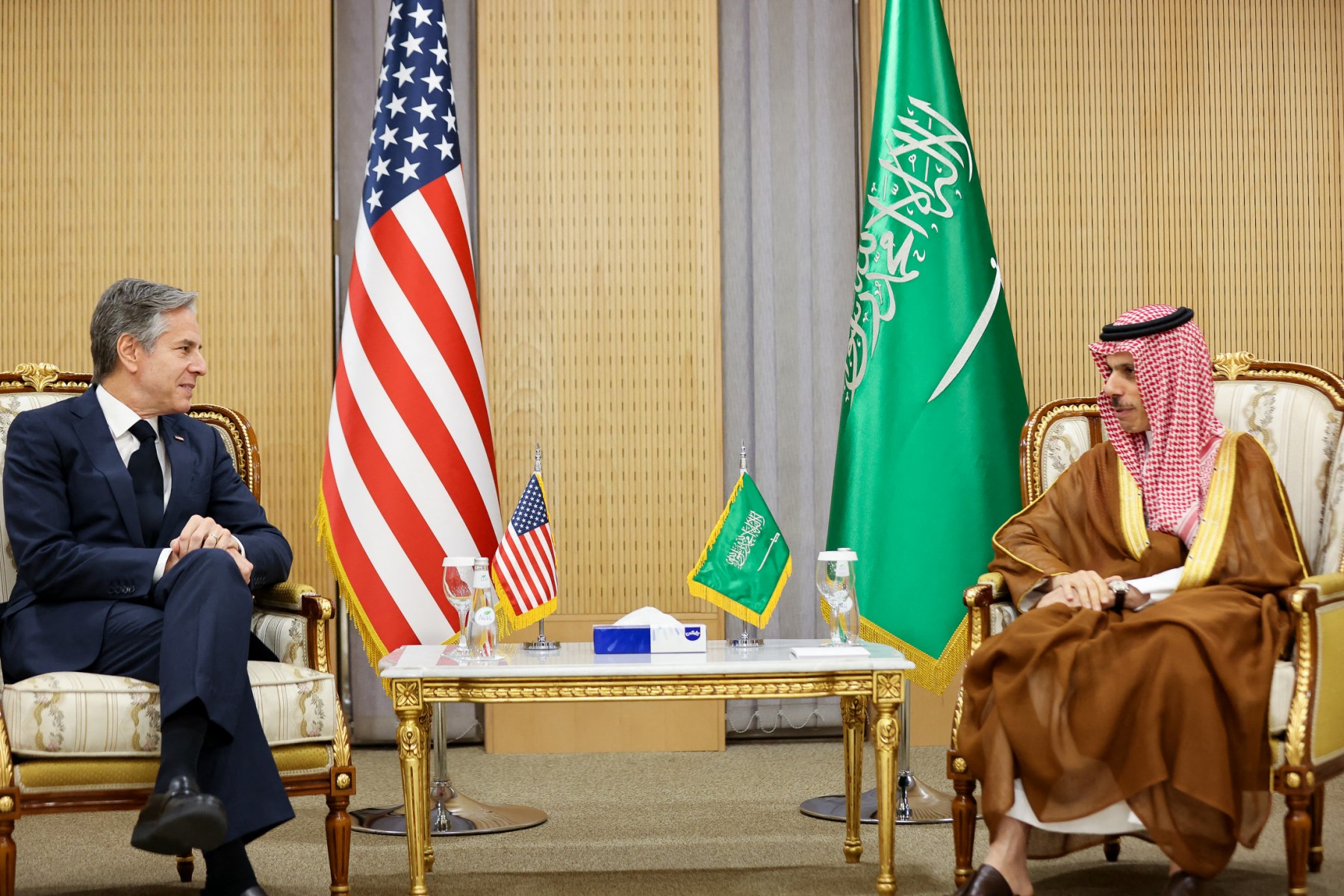Riyadh, Saudi Arabia – Saudi Arabia has signalled its willingness to increase oil production to earn goodwill for a historic three-way agreement involving the US-Saudi defense pact, weapons sales, and a civilian nuclear program, Wall Street Journal reported on Friday.
Saudi officials have reportedly informed the White House that they are open to raising oil production if crude prices remain high, in an effort to support the normalization deal, according to the WSJ report. The development comes after months of diplomatic efforts by the United States to broker a historic normalization agreement between Israel and Saudi Arabia.
Historically, Saudi Arabia, home to Islam’s holiest sites, has not recognized Israel and has maintained that recognition would only happen with a just resolution to the Israeli-Palestinian conflict. Unlike its Gulf neighbors Bahrain and the United Arab Emirates, as well as Morocco, Saudi Arabia did not join the US-brokered Abraham Accords in 2020, which established formal ties with Israel.
In addition to the defense pact and arms sales, Saudi Arabia has requested US cooperation on a civilian nuclear program on Saudi soil and Israeli concessions to the Palestinians to secure the normalization agreement.
A group of 20 Democratic senators recently expressed their support for the normalization efforts but raised concerns about Saudi security and nuclear demands. They urged the Biden administration to use the deal to advance a two-state solution in the Israeli-Palestinian conflict.
Saudi Arabia’s offer to increase oil production in 2024 represents a shift from its stance in last year when it rejected a US request to raise production to lower oil prices and control inflation following the Russian invasion of Ukraine. Last October, Riyadh, along with other top oil producers, implemented a significant production cut to boost crude prices.
The Palestinian Authority has presented a list of potential steps they would like to see taken in the context of the normalization talks, including US backing for recognition of Palestinian statehood at the United Nations and the reopening of the US consulate in Jerusalem, among others.
In recent developments, Israeli ministers have made the first-ever official visits to Saudi Arabia, marking a significant regional breakthrough. These diplomatic efforts indicate the growing momentum toward a potential normalization agreement between Israel and Saudi Arabia.








